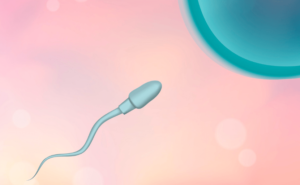- What are the effects of the COVID-19 vaccine on pregnant women, fetuses, breastfeeding, and reproductive organs?
- Should pregnant women get the COVID-19 vaccine?
- Is it safe to get the COVID-19 vaccine while breastfeeding?
- Pregnant women can receive the COVID-19 vaccine as a priority
- Safety of COVID-19 vaccination during pregnancy
- Safety of COVID-19 vaccination while breastfeeding
- Procedure for pregnant women to receive the COVID-19 vaccine
- Preparation until the day before
- Items to bring on the day
- Precautions for pregnant women when receiving the COVID-19 vaccine
- Where can pregnant women get the COVID-19 vaccine?
- NIPT (Non-Invasive Prenatal Testing) for healthier pregnancy and childbirth
What are the effects of the COVID-19 vaccine on pregnant women, fetuses, breastfeeding, and reproductive organs?
The COVID-19 vaccine is not considered to have direct adverse effects on pregnant women (those hoping to conceive), fetuses, breastfeeding, or reproductive organs.
Adverse effects include:
- Increased risk of miscarriage or stillbirth
- Presence of COVID-19 vaccine components in breast milk
- Impact on fetal development
- Infertility (for both men and women)
COVID-19 vaccines that have not shown adverse effects on pregnant women
As of February 2022, the COVID-19 vaccines considered to have no adverse effects are mRNA (messenger RNA) vaccines.
Specifically,
- Pfizer
- Takeda/Moderna
The vaccine from AstraZeneca is a viral vector vaccine, and data regarding its adverse effects on pregnant women, fetuses, and infants is still insufficient.
Should pregnant women get the COVID-19 vaccine?
COVID-19 vaccination is recommended for pregnant women. If a pregnant woman contracts COVID-19 and becomes severely ill, the risks of the following increase:
- Preterm birth
- Pregnancy complications※1
- Adverse effects on the fetus
These risks are particularly high if severe illness occurs in the later stages of pregnancy.
When the COVID-19 vaccines were first made available, there was limited evidence※2 regarding adverse effects. However, as of February 2022, the amount of evidence has increased, indicating that the impact on pregnant women and fetuses is minimal. Therefore, the Ministry of Health, Labour and Welfare and the Japan Society of Obstetrics and Gynecology recommend COVID-19 vaccination for pregnant women.
This recommendation is also supported internationally, with organizations advising COVID-19 vaccination for pregnant women, such as
- CDC (Centers for Disease Control and Prevention)
- ACOG (American College of Obstetricians and Gynecologists)
- UK health authorities
※1 Pregnancy complications: Conditions that occur as a result of pregnancy. If these conditions worsen, they can pose a life-threatening risk to both mother and child.
※2 Evidence: Synonymous with proof, substantiation, and scientific basis. Reliability derived from extensive data and research.
Pregnant women are more susceptible to severe illness due to weakened immunity
Pregnant women tend to develop severe symptoms if they contract COVID-19.
Compared to non-pregnant women, pregnant women have a lowered immune response※3. This is because the mother’s body reduces its immune response to avoid attacking the fetus, which it recognizes as a foreign object.
Due to this lowered immunity, respiratory infections are more likely to become severe in the later stages of pregnancy.
※3 Immune response: The body’s ability to protect itself from harmful bacteria, viruses, and foreign objects. A weakened immune response makes one more susceptible to infections and illnesses.

Is it safe to get the COVID-19 vaccine while breastfeeding?
COVID-19 vaccination during breastfeeding is also considered safe and is recommended by various organizations. This is because the components of the COVID-19 vaccine are not believed to be present in breast milk.
The antibodies※4 to COVID-19 present in breast milk after vaccination help protect infants from infection and severe illness.
※4 Antibodies: Substances produced in the body to eliminate foreign objects (such as pathogens and viruses). These proteins, known as immunoglobulins, are a source of immune response.
Pregnant women can receive the COVID-19 vaccine as a priority
The Ministry of Health, Labour and Welfare and the Japan Society of Obstetrics and Gynecology are urging medical facilities and local governments to prioritize COVID-19 vaccination for pregnant women.
In some cases, pregnant women’s cohabiting family members and spouses can also receive priority vaccination. It is necessary to confirm with each medical facility or local government, as circumstances may vary.
The reason for prioritizing cohabiting family members and spouses along with pregnant women is that the primary source of COVID-19 infection for pregnant women is their cohabiting family members and spouses. Specifically, about 80% of infections in pregnant women are from cohabiting family members or spouses.
Safety of COVID-19 vaccination during pregnancy
It is believed that receiving the COVID-19 vaccine during pregnancy does not increase the risk of miscarriage or stillbirth. Compared to pregnant women who have not been vaccinated, the risk of miscarriage or stillbirth remains the same, and the impact on the placenta is very minimal. Similarly, the long-term effects on the fetus after vaccination do not show an increased risk.
- Fetal growth restriction
- Congenital anomalies
- Neonatal mortality rate
The above conditions—fetal growth restriction, congenital anomalies, and neonatal mortality rate—are not believed to be directly related to the COVID-19 vaccine.
Safety of COVID-19 vaccination while breastfeeding
The impact of the COVID-19 vaccine on breastfeeding infants is considered to be minimal. This is because the components of the COVID-19 vaccine are believed to be present in very small amounts in breast milk. For example, there are studies that have examined the breast milk of pregnant women who received mRNA vaccines (COVID-19 vaccines). According to these studies, no mRNA (vaccine-derived mRNA) was found in the breast milk. Therefore, the components of the COVID-19 vaccine do not transfer directly to breast milk. Instead, the antibodies produced from the vaccination are present in the breast milk, so there is no need to stop breastfeeding after receiving the COVID-19 vaccine.
Procedure for pregnant women to receive the COVID-19 vaccine
Consult your obstetrician-gynecologist to ask:
- If you can receive the COVID-19 vaccine
- If they are administering the COVID-19 vaccine
If your obstetrician-gynecologist does not offer COVID-19 vaccinations, you can:
- Contact other medical institutions
- Contact your local government
You can book individual or mass vaccination appointments conducted by the above. Local government websites may have lists of medical institutions that provide COVID-19 vaccinations.
On the day of vaccination, be sure to check the box for “Are you currently pregnant or breastfeeding?” and inform the screening doctor at the vaccination site that you have obtained permission from your obstetrician-gynecologist to receive the COVID-19 vaccine.
Preparation until the day before
In addition to preventing COVID-19, adopt lifestyle habits that reduce the risk of other infections, and prepare for possible side effects※5.
Basic precautions are essential to avoid infections:
- Avoid meeting people as much as possible
- Avoid crowded places
- Wear a mask
- Wash hands and disinfect thoroughly
※5 Side effects: Symptoms such as fever, lumps, and fatigue that may occur after vaccination. These are different from COVID-19 infection symptoms.
Countermeasures against side effects (about antipyretics and pain relievers)
Consult your healthcare provider about medications to manage side effects.
There are no reports of severe side effects in pregnant women receiving the COVID-19 vaccine. However, stress from side effects may impact both the mother and fetus, so proper preparation is crucial.
For example, fever is a common side effect. Acetaminophen is a safe antipyretic for use during pregnancy and is available at drugstores. It also serves as a pain reliever.
Acetaminophen can address COVID-19 vaccine side effects such as:
- Pain at the injection site
- Joint pain
- Headache
Some antipyretics can cause fetal death. Additionally, many over-the-counter medications are contraindicated during pregnancy. Do not self-medicate; always consult your healthcare provider regarding any medication use during pregnancy.
Items to bring on the day
Check with the local government or medical institution hosting the COVID-19 vaccination for required items to bring on the day of vaccination.
Generally, you will need:
- Maternal and Child Health Handbook
- Identification document
- Vaccination coupon
- Medication record book
- Health insurance card
To facilitate a smooth vaccination process, wear clothing that allows easy access to your shoulder and bring a companion who can assist you in case of any health issues.

Precautions for pregnant women when receiving the COVID-19 vaccine
Beware of fake COVID-19 vaccines
The recommended vaccines for pregnant women are mRNA vaccines. The vaccines currently considered safe for pregnant women are:
- Pfizer
- Takeda/Moderna
Although it may be rare in Japan, counterfeit COVID-19 vaccines are reportedly being traded on the dark web worldwide. The WHO (World Health Organization) issued a warning about this in March 2021.
Preferably receive the vaccine after 12 weeks
COVID-19 vaccination is recommended to be avoided during the first 12 weeks of pregnancy, which is the organogenesis period※6.
The organogenesis period is considered a delicate time for both the mother’s body and the fetus. Due to the instability during this period, it can be difficult to distinguish between abnormalities caused by natural factors and those potentially caused by the COVID-19 vaccine, leading to confusion.
Currently, the COVID-19 vaccines deemed safe are not believed to cause teratogenicity※7 or developmental issues. Consult with your healthcare provider to determine the appropriate timing for receiving the COVID-19 vaccine.
※6 Organogenesis period: The period when organs and tissues begin to form, such as the central nervous system, heart, limbs, and facial features. This is the time when the fetus is most susceptible to substances ingested by the mother.
※7 Teratogenicity: The potential of viruses, radiation, or medications to cause birth defects in a fetus.
Preferably have a checkup a few days before the vaccination date
A pregnant woman’s body can be unstable, and there may be significant differences in health between the day the COVID-19 vaccine appointment is made and the day of vaccination. This is especially true before the stable period (after 5 months), during which time the health condition can change frequently.
If you have concerns about your health, consider having a checkup with your healthcare provider both before making the appointment and just before the vaccination day.
Where can pregnant women get the COVID-19 vaccine?
Priority COVID-19 vaccinations for pregnant women are primarily conducted at the following:
- Medical institutions
- Local government facilities
Some medical institutions may not offer COVID-19 vaccinations for pregnant women. Be sure to confirm this in advance.
Consult your primary care doctor about COVID-19 vaccination during pregnancy
Currently, COVID-19 vaccination is recommended for pregnant women.
This is because the benefits of receiving the COVID-19 vaccine are considered to outweigh the potential drawbacks and any yet-to-be-discovered risks.
Organizations that have made statements as of February 2022 include:
- Ministry of Health, Labour and Welfare
- Japan Society of Obstetrics and Gynecology
- CDC (Centers for Disease Control and Prevention)
- ACOG (American College of Obstetricians and Gynecologists)
- UK health authorities
However, pregnant women are exempt from the obligation to make efforts to receive the COVID-19 vaccine.
If you have any questions or concerns about receiving the COVID-19 vaccine during pregnancy, consult your healthcare provider.
NIPT (Non-Invasive Prenatal Testing) for healthier pregnancy and childbirth
In addition to concerns about COVID-19 vaccination, pregnant women are often worried about their baby’s health. Among these concerns, the risk of congenital disorders due to chromosomal abnormalities in the baby is difficult to detect through routine prenatal checkups.
Hiro Clinic NIPT offers NIPT (Non-Invasive Prenatal Testing), which can be performed immediately after pregnancy confirmation via ultrasound. NIPT (Non-Invasive Prenatal Testing) involves only a blood test from the mother, causing no direct harm to the baby.
NIPT (Non-Invasive Prenatal Testing) is considered a highly accurate screening test for Down syndrome (trisomy 21), with both sensitivity and specificity rates of 99.9%.
Hiro Clinic NIPT offers the convenience of completing reservations, consent forms, and medical questionnaires online for pregnant women who are concerned about going out or being in crowds. Additionally, for any questions or concerns regarding NIPT (Non-Invasive Prenatal Testing), feel free to consult with the doctors and staff at Hiro Clinic NIPT. Let’s work together to find the best NIPT plan for a healthier pregnancy and childbirth.
【Reference】
- Ministry of Health, Labour and Welfare – COVID-19 Vaccine Q&A
- Ministry of Health, Labour and Welfare – COVID-19 Measures for Pregnant Women
- Japan Society of Obstetrics and Gynecology – To All Pregnant Women
- Japan Society of Obstetrics and Gynecology – To All Women
- National Center for Child Health and Development – COVID-19 Vaccination for Pregnant and Breastfeeding Women
- Ministry of Health, Labour and Welfare – Official Communication
- The New England Journal of Medicine – Preliminary Findings of mRNA Covid-19 Vaccine Safety in Pregnant Persons
- Centers for Disease Control and Prevention – COVID-19 Vaccines While Pregnant or Breastfeeding
- Nara City – [For Pregnant Women] About COVID-19 Vaccination
- Japan Society of Obstetrics and Gynecology – For Pregnant Women and Those Considering Pregnancy Regarding COVID-19 Vaccination
- CNBC – WHO warns against sales of counterfeit Covid vaccines on the dark web
- Ministry of Health, Labour and Welfare – Is it true that it causes infertility? Is it safe during pregnancy? Explanation of COVID-19 Vaccines (mRNA Vaccines) for Women
- Sivan Haia Perl, MD; Atara Uzan-Yulzari, MSc; Hodaya Klainer, BSc; et al – SARS-CoV-2–Specific Antibodies in Breast Milk After COVID-19 Vaccination of Breastfeeding Women
Article Editorial Supervisor

Dr Hiroshi Oka
NIPT specialist clinic, MD
Graduated from Keio University, School of Medicine
 中文
中文






















